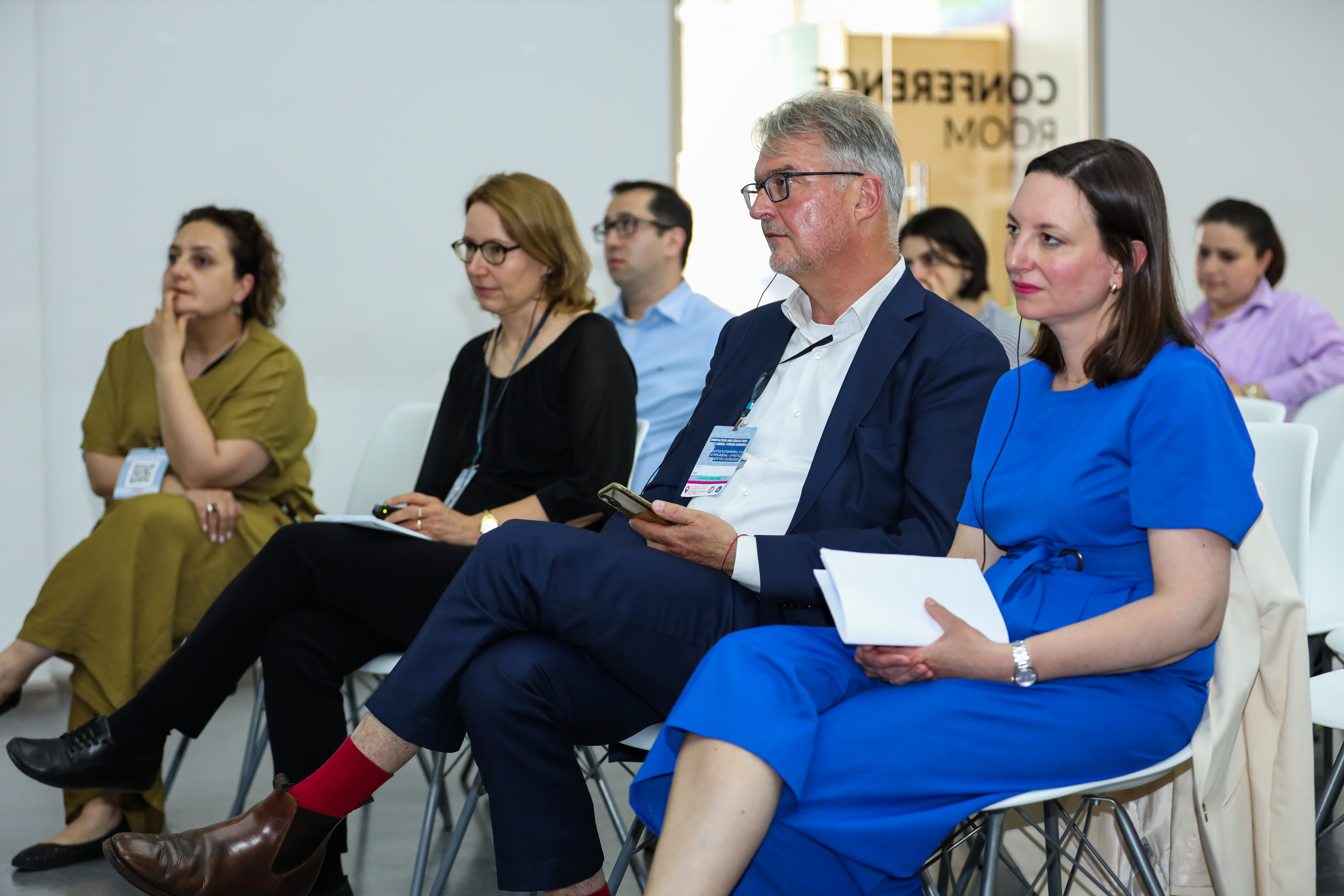Liberal Forum
Innovation and Education: Which policies help both to cross-fertilize each other?

Vahe Poghosyan, FNF
What are the interactions between innovation and education? What are the challenges in education policymaking? So many questions. So many things to discuss. We started with this inquiry several months ago and decided to organize an Innovation and Education - Liberal Forum Armenia. The forum brought Armenian and German experts in this field together to share knowledge and experience.
For years, Armenia has been in the process of setting itself up as a country of innovation IT and tries to attract foreign companies to the country. According to UNECE, Armenia has made significant progress in developing a competitive economy and growing its information and communication technology (ICT) sector. It continues to support technological and scientific progress, which has helped make the country an international leader in the export of ICT services. The Armenian Government has implemented specific tax policies and created a nexus between schools, universities and companies. Since Armenia’s “Velvet revolution” in 2018, the country is reforming its education system, which still contained many practices from the Soviet past.
Education policy can determine the future development of the country. As the state is in the process of reform, there is plenty of room to discuss and advocate for progressive policies. With this in mind, FNF hosted the Innovation and Education – liberal Forum Armenia at the ISTC Foundation, located in Yerevan State University. The venue was symbolic. ISTC Foundation is an institution where innovation, information technologies, education and scientific research meet and lead to discoveries that are so necessary in today's world. The event started with discussing current challenges, such as AI and its use in education. “Often, a first reflex is to forbid the use of an innovation, as it’s now done by many educational institutions in Germany which do not allow to use Chat/GPT. Instead, students must learn how to work with it, find its logical errors and discover its biases”, Katrin Bannach noted, Head of FNF South Caucasus.
During the event, we dove into the process of policy making in education with Dr. Maren Jasper-Winter, former MP of the Berlin Senate, and Arevik Anapiosyan, former Deputy Minister of Science, Education, Youth and Culture. The fire-side chat discussion between them focused on challenges of policy making. The German case of decentralization has created opportunities for development, but at the same time leads to difficulties in implementing policy changes across the country, because each federal states can challenge these policies through their local governments. On the other hand, the strongly centralized Armenian system does not provide enough space to educational institutions to experiment and innovate.
Very impressive was the TED-Talk style presentation by SDG Innovation Lab Armenia in the field of public policy. The lab was established to transform policy practices in Armenia by making them more data-driven, human-centred, and behaviourally-informed. The Lab aims to foster the culture of innovation and experimentation by seeking unconventional solutions and breakthrough technologies. Anzhela Movsisyan, Lead of Learning and Development Lab, was able to share interesting projects that use innovation to better shape public policy in education and other areas.
"History is a dialogue between the presence and the past" noted Narek Manukyan and critical history teaching can pave way for a future generation of liberal-minded people. In history and humanities classes, students can develop critical thinking skills. Besides supporting innovation, critical thinking is the cornerstone of a democratic culture. How can we make these subjects more innovative and to create a space for creativity? Narek Manukyan, who is the co-founder of Paradigma Foundation presented projects that are engaging, human-centered, and challenging for students. According to Dr. Steffen Sammler of the Georg Eckert Institute, also the German history curriculum is undergoing constant changes, with promoting critical thinking at the heart of the changes.
To dive into informal educational opportunities, our next stop was the TUMO Center for Creative Technologies. The non-profit center in Yerevan and the Armenian regions provides opportunities for about 20000 student between the age of 13 to 18 years to learn games, animation, filmmaking, web development, and other innovative and creative skills. Students pave their own learning path through various self-learning activities, workshops and project labs on 14 learning objectives. It gave us another opportunity to discuss what innovation and education can do together to create better opportunities for youth.
It was the first time that FNF Armenia hosted the Innovation and Education – liberal Forum. From now onwards, we will increase our work on innovation in different areas that can shape the future of not only Armenia, but also the world.
